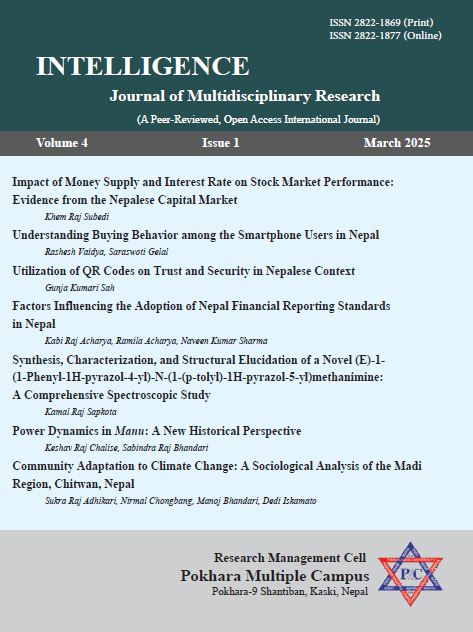Community Adaptation to Climate Change: A Sociological Analysis of the Madi Region, Chitwan, Nepal
DOI:
https://doi.org/10.3126/ijmr.v4i1.76934Keywords:
Climate change, Community adaptation pattern, Indigenous knowledge, Livelihook, ResilienceAbstract
Climate change brought about significant disruptions to local weather patterns, impacting communities worldwide. In Nepal, the Madi community of Chitwan district experienced these changes acutely, facing challenges that threatened livelihoods, agricultural productivity, and community well-being. Understanding the local dimensions of weather patterns (changing climate) and identifying effective adaptation strategies were crucial for building resilience at the grassroots level. While there was rising recognition of the global implications of climate change, localized studies focusing on specific communities, such as the Madi community, remained limited.
This research aimed to explore the constraints faced by the Madi community in Chitwan district due to changing weather patterns, and to evaluate the effectiveness of local adaptation strategies in mitigating these impacts. To gain the objective this research adopted a participatory action research (PAR) approach, using case study, field observation, focus group discussions (FGDs) and KII, with members of the Madi community. Participants actively involved themselves in data collection and analysis, ensuring the research was grounded in their lived experiences and local knowledge. The study also included interviews with key informants from local agricultural and community organizations.The study identified weather-related several challenges, including unpredictable rainfall, increased temperatures, and flooding, all of which severely impacted local agriculture, food security, and overall livelihood. Local adaptation strategies, such as diversifying crop types, adjusting planting seasons, and developing water management techniques, were effective in reducing vulnerability. By drawing on indigenous knowledge and practices, the Madi community developed innovative solutions that enhanced resilience.




